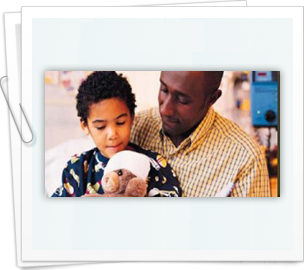Online CPR Certification Blog
Concussion in kids
Date: June 20th, 2013
 Recently, researchers did two studies on concussion and concluded that cognitive effects of this condition lasted for a relatively longer period in kids and that there exists a correlation between sleeping disturbance and concussion symptoms. These two studies were recently presented at an annual meeting of American Medical Society of Sports Medicine that took place in San Diego between April 17 and 21st.
Recently, researchers did two studies on concussion and concluded that cognitive effects of this condition lasted for a relatively longer period in kids and that there exists a correlation between sleeping disturbance and concussion symptoms. These two studies were recently presented at an annual meeting of American Medical Society of Sports Medicine that took place in San Diego between April 17 and 21st.
How concussion disrupts schooling in children
Led by Daniel J. Corwin from Children’s Hospital of Philadelphia, the research team characterized prevalence of certain comorbiditeies, emotional and cognitive results in a group of 3740 patients with unique pediatric concussion conditions. Most of the cases were related to sports. According to the report released by the researchers, concussion patients didn’t attend school for an average period of 37 days while 13 percent of the patients missed at least 6 months of school. In addition, at least two thirds of the children needed some kind of accommodation in the school. During the recovery period, a significant drop in school grades was observed in 61 percent of the patients. Of the total cases analyzed, 28 percent of the children suffered from comorbid condition, which included the attention deficit hyperactivity disorder, anxiety, depressing and learning disabilities for some. The patients were free from symptoms after an average of 66 days.
Another research team led by Fnu Seemant from University of Buffalo in New York aimed to examine how perceived sleeping disturbance correlates with post concussion scores. The study was done on a group of 99 patients suffering from concussion. According to the research findings, the index score of Insomnia Severity showed a significant correlation with PCS- Post Concussion Scale. Persistence in correlation was also observed for patients experiencing mild cases of insomnia unlike those suffering from severe insomnia. The researchers found the highest level of correlation for ‘trouble falling asleep’ component of PCS.
For patients with concussion as well as those experiencing post concussion syndromes, sleep disturbance was identified as a key contributor to symptomatology, as written by the research team. Seemant and his team also advised that clients need to consider using a validated and informative questionnaire to analyze the sleep quality of insomnia. According to the researchers, this will great help the doctors to comprehend medical problems being experienced by their patients.
Defining a concussion and symptoms
The research validated that one doesn’t have to be unconscious in order to be regarded as to have a concussion. Common signs of concussion are such as headache, disorientation, loss of balance or vertigo, vomiting and nausea. Other secondary symptoms of concussions include insomnia, mood swings, slurred talk, loss of memory, increased sensitivity to light and noise, clumsy symptoms and unintentional dropping of items. Multiple concussions can also have some disastrous health dangers and cognitive disorders such as inability to remember, focus, and even perceive.
